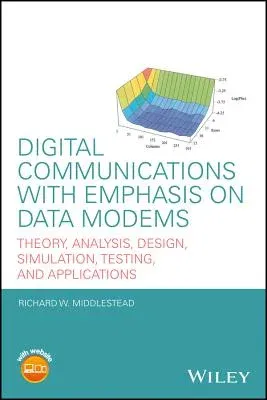This book uses a practical approach in the application of theoretical
concepts to digital communications in the design of software defined
radio modems.
This book discusses the design, implementation and performance
verification of waveforms and algorithms appropriate for digital data
modulation and demodulation in modern communication systems. Using a
building-block approach, the author provides an introductory to the
advanced understanding of acquisition and data detection using source
and executable simulation code to validate the communication system
performance with respect to theory and design specifications. The author
focuses on theoretical analysis, algorithm design, firmware and software
designs and subsystem and system testing. This book treats system
designs with a variety of channel characteristics from very low to
optical frequencies. This book offers system analysis and subsystem
implementation options for acquisition and data detection appropriate to
the channel conditions and system specifications, and provides test
methods for demonstrating system performance. This book also:
- Outlines fundamental system requirements and related analysis that
must be established prior to a detailed subsystem design
- Includes many examples that highlight various analytical solutions and
case studies that characterize various system performance measures
- Discusses various aspects of atmospheric propagation using the
spherical 4/3 effective earth radius model
- Examines Ionospheric propagation and uses the Rayleigh fading channel
to evaluate link performance using several robust waveform modulations
- Contains end-of-chapter problems, allowing the reader to further
engage with the text
Digital Communications with Emphasis on Data Modems is a great
resource for communication-system and digital signal processing
engineers and students looking for in-depth theory as well as practical
implementations.

